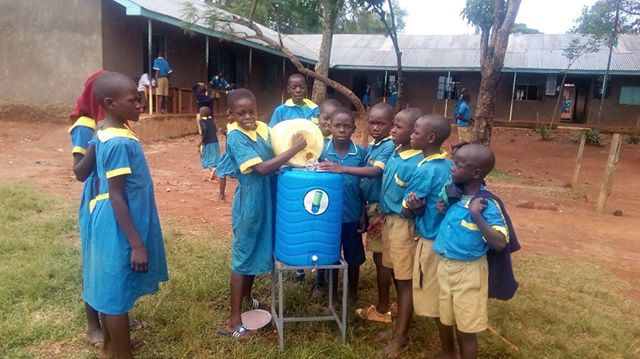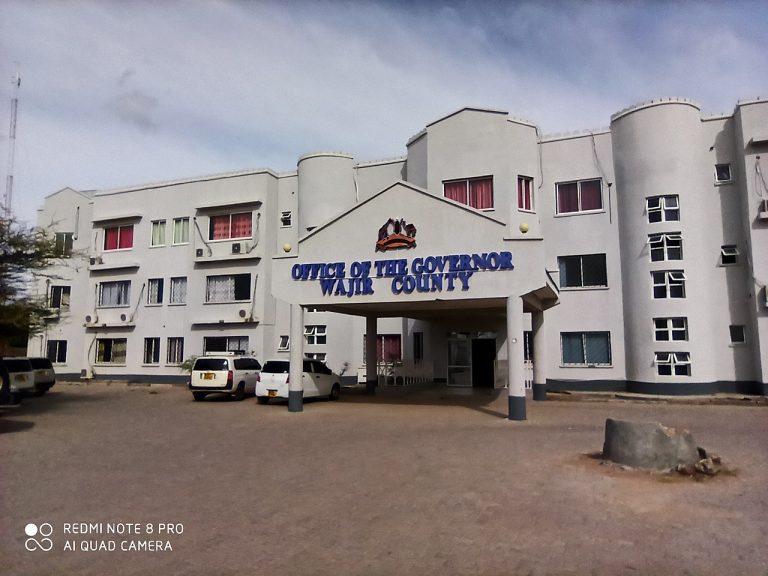SEO Meta-Description:
When you think about impactful organizations in the WASH (Water, Sanitation, and Hygiene) sector in Kenya, Maji Na Ufanisi (MNU) often comes to mind. The NGO has been transforming communities, providing essential water services, and creating resilience in vulnerable areas for over 27 years. Their journey is more than a series of projects—it’s a collection of inspiring success stories that reveal the deep, lasting impact of their interventions.
In this article, we’ll delve into the success stories that highlight the organization’s immense contributions to water access, sanitation, and climate resilience. You’ll learn how Maji Na Ufanisi’s approach has not only brought clean water to marginalized communities but has also empowered them, driven policy changes, and influenced sustainable environmental practices across Kenya.
A Detailed Explanation of Maji Na Ufanisi’s Mission and Approach
Founded in 1997, Maji Na Ufanisi has built a strong reputation as a pioneer in water, sanitation, and hygiene interventions in urban, rural, and arid and semi-arid lands (ASAL) in Kenya. The organization’s mission is to improve access to clean water and sanitation services, contributing to overall health and well-being, particularly for marginalized groups. By targeting urban slums, rural areas, and ASAL regions, MNU addresses water scarcity and the need for better sanitation facilities where they are most needed.
Their interventions focus on building community resilience to climate change, an urgent issue affecting many parts of Kenya. The organization adopts a holistic approach by engaging communities directly, ensuring their solutions are sustainable and impactful in the long term.
Capacity Building of Community-Based Organizations (CBOs)
One of the standout strategies of MNU is their capacity-building initiatives for Community-Based Organizations (CBOs). These CBOs are instrumental in ensuring that the projects MNU implements continue to benefit the community even after the organization exits. A great example of this is the WASHEM model in Mombasa County.
The WASHEM Model in Mombasa County

The WASHEM model (Water, Sanitation, and Hygiene Management) scaled up by youth-run businesses in Mombasa has made a significant difference. This program empowered 40 youths by creating formal job opportunities while improving water and sanitation services for over 10,000 people in the region. This initiative serves as a powerful example of how involving the local community—particularly the youth—leads to sustainable solutions.
Promoting Water and Sanitation in Slum Areas
MNU has focused much of its efforts on improving water access and sanitation facilities in urban slum areas. With programs tailored to the unique challenges faced in these densely populated informal settlements, they’ve made clean water accessible to thousands who previously struggled with scarcity. One notable success was in Bangladesh, an informal settlement in Mombasa, where over 25,000 residents now have access to clean water, thanks to the construction of sanitation facilities.
The formation of a Community-Based Organization to manage these services ensured that the program was not just a temporary fix but a long-term solution that would be owned and operated by the community.
Strengthening WASH Governance and Advocacy
Beyond direct service delivery, Maji Na Ufanisi has become a key player in WASH governance and policy advocacy. They work alongside local governments and civil society organizations to influence water policies at both national and county levels. Their involvement in the Kenya Water and Sanitation Civil Society Network (KEWASNET) has made them a trusted partner in driving positive change, ensuring that access to water and sanitation remains a priority.
Through such advocacy, MNU helps to ensure that water rights and sanitation services are recognized as fundamental human rights. Their lobbying has directly impacted policies that now favor the marginalized populations who struggle the most to access these services.
Rehabilitating School Water and Sanitation Infrastructure

Access to clean water and sanitation is especially critical in public schools, where hundreds of children are often exposed to diseases due to unsanitary conditions. Recognizing this, Maji Na Ufanisi has prioritized rehabilitating water systems and building sanitary facilities in primary schools across urban and rural Kenya.
One such success story is in Taita Taveta County, where more than 3,500 students now enjoy improved sanitation facilities, contributing to better health and school attendance. By focusing on hygiene education, the organization ensures that these young students are equipped with lifelong habits that promote better health outcomes.
Tackling Climate Change and Water Scarcity
With the increasing impacts of climate change in Kenya, Maji Na Ufanisi has integrated climate resilience into its WASH programs. Their climate-focused projects in arid and semi-arid regions (ASALs) aim to address water scarcity, improve food security, and help communities adapt to changing environmental conditions.
By employing innovative water-saving technologies and teaching sustainable agricultural practices, they’ve enabled farmers in these regions to continue growing crops despite unpredictable weather patterns. This not only improves food security but also reduces the vulnerability of communities to climate-related disasters.
Partnerships that Drive Change
MNU’s success would not be possible without the support of numerous local and international partners. Over the years, the organization has collaborated with institutions like UN-Habitat, the Embassy of Sweden (SIDA), and Danish People’s Aid (DPA) to fund and execute various projects. Their ability to foster partnerships with both government and private entities has allowed them to scale their interventions and reach more people in need.
For example, their slum upgrading program, funded by international donors, had a budget of $1.5 million and successfully improved the lives of thousands of slum dwellers. The program not only provided clean water and better sanitation but also created jobs and strengthened community leadership.
The Ripple Effect: From Local to Global Influence
The lessons learned from Maji Na Ufanisi’s work have ripple effects far beyond Kenya’s borders. By sharing their successes and challenges at local, regional, and global platforms, MNU contributes to a broader understanding of effective WASH interventions in low-resource settings. Their knowledge-sharing efforts have helped other organizations and governments improve their WASH strategies, creating a global ripple effect of positive change.

How Maji Na Ufanisi Is Making a Difference
Maji Na Ufanisi continues to drive its mission by aligning with the United Nations’ Sustainable Development Goals (SDGs), particularly Goal 6: Ensure access to water and sanitation for all. Through targeted WASH interventions, climate resilience projects, and advocacy, MNU aims to create a future where everyone in Kenya—and beyond—has access to clean, safe water.
Their strategy focuses on empowering communities to manage their water resources, thus creating self-sustaining systems that survive long after the organization’s direct involvement ends. By integrating gender inclusion, climate adaptation, and innovative circular economy practices like waste recycling, MNU continues to demonstrate that sustainable development is possible, even in the most challenging environments.
Conclusion
The success stories of Maji Na Ufanisi demonstrate the organization’s tireless dedication to improving access to clean water, sanitation, and hygiene in Kenya. Through capacity building, partnerships, and sustainable solutions, MNU continues to bring hope to marginalized communities, ensuring that everyone has the right to clean water.
FAQs about Maji Na Ufanisi’s Success Stories
- What is Maji Na Ufanisi?
Maji Na Ufanisi is a Kenyan NGO focused on water, sanitation, and hygiene (WASH) programs, climate change resilience, and advocacy.
- How long has Maji Na Ufanisi been active?
The organization has been active for over 27 years since its inception in 1997.
- What areas does MNU focus on?
MNU works in urban, rural, and arid regions of Kenya, improving access to water, sanitation, and climate resilience.
- How does MNU engage local communities?
Through capacity-building initiatives for Community-Based Organizations, MNU ensures communities take ownership of projects.
- What is the WASHEM model?
The WASHEM model is a youth-led initiative that improves WASH services while creating job opportunities in Mombasa.
- What impact has MNU had in schools?
MNU has rehabilitated sanitation systems in public schools, improving hygiene and health for thousands of students.
- Does MNU work with partners?
Yes, MNU collaborates with various international and local organizations, including the Embassy of Sweden and UN-Habitat.
- How does MNU address climate change?
MNU integrates climate resilience into its WASH programs, particularly in arid regions, using water-saving technologies and sustainable agriculture.
- What role does advocacy play in MNU’s work?
MNU actively engages in WASH policy advocacy, influencing national and local water governance.
- How can I support Maji Na Ufanisi?
You can support by donating, partnering, or advocating for MNU’s life-changing WASH programs.


